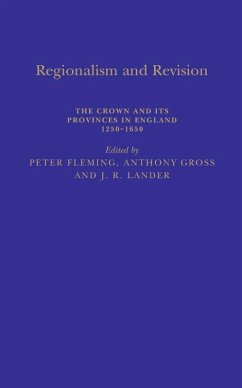Historians of premodern Europe often think in terms of 'small worlds': a series of regional societies functioning independently of each other. This approach works well for isolated areas but is less obviously applicable to England, the most centralised country in Europe. How far England was centrally controlled and how far power in reality remained in the localities are key considerations in understanding English history both in the middle ages and afterwards.
The essays in Regionalism and Revision all address these questions, both by analysing how the problem should be approached and by examining what the exercise of power involved in local terms. Did the gentry dominate local office by virtue of their intrinsic importance in their counties or were they dependent for the continuation of their power and wealth on the renewal of their commissions from the central government? How did magnates mediate influence at the centre on behalf of the localities, and how were they repaid for it? How did officials appointed by the crown, including sheriffs and JPs, react to having to impose unpopular burdens, such as purveyance, upon the counties?
The essays in Regionalism and Revision all address these questions, both by analysing how the problem should be approached and by examining what the exercise of power involved in local terms. Did the gentry dominate local office by virtue of their intrinsic importance in their counties or were they dependent for the continuation of their power and wealth on the renewal of their commissions from the central government? How did magnates mediate influence at the centre on behalf of the localities, and how were they repaid for it? How did officials appointed by the crown, including sheriffs and JPs, react to having to impose unpopular burdens, such as purveyance, upon the counties?









